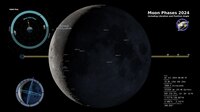
Photo from wikipedia
AbstractGPS relative positioning performance highly relies on the quality control algorithm. Previous efforts were mainly made with emphasis on the phase cycle slip detection in the preprocessing stage and the… Click to show full abstract
AbstractGPS relative positioning performance highly relies on the quality control algorithm. Previous efforts were mainly made with emphasis on the phase cycle slip detection in the preprocessing stage and the posterior residual check to re-weight observations. Very limited work focused on the code observation error and its effect on GPS relative positioning. This paper proposes a GPS relative positioning quality control algorithm that considers both code and phase errors of dual-frequency observations for geodetic and navigation receivers. In addition to the phase cycle slip detection in the preprocessing stage, a posterior code residual check is developed that has priority over the posterior phase residual check. If the posterior code residual check fails, no posterior phase residual check is needed. In this sense, the effect of code observation error on the phase ambiguity estimation and subsequently high-precision positioning can be investigated. Three dedicated static and kinematic experiments were carried out to assess the proposed method in terms of the ambiguity and positioning solutions, respectively. As for Experiment #1 under good observation environment, the proposed method provided a similar performance as the conventional method not taking the code observation error into account. However, Experiment #2 characterized by the tree-surrounded observation environment and Experiment #3 for kinematic positioning above the lake surface indicated that the proposed method could provide significant improvements over the conventional method. The ignorance of code observation error would deteriorate the phase ambiguity estimation and subsequently lead to worse positioning convergence and precision.
Journal Title: Journal of Geodesy
Year Published: 2019
Link to full text (if available)
Share on Social Media: Sign Up to like & get
recommendations!